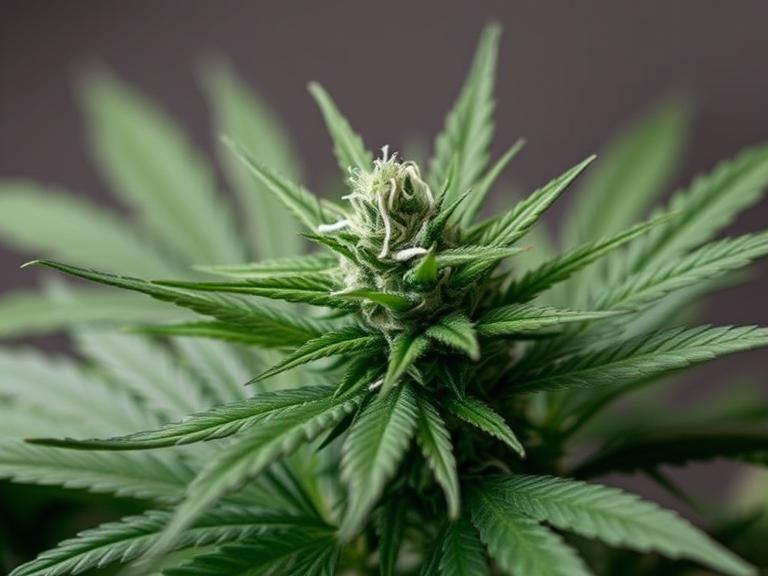
The Biggest Weed Myths (And What’s Actually True)
by Dexter Cann
·
Table of Contents
Cannabis has long been surrounded by misinformation, outdated beliefs, and myths that continue to influence public perception. Despite growing legalization and scientific research, many of these misconceptions persist. Whether you're new to cannabis or a seasoned enthusiast, it’s essential to separate fact from fiction.
In this article, we’ll break down some of the biggest weed myths and uncover what’s actually true.
Myth #1: Weed Is a Gateway Drug
The Truth: This is one of the most common myths surrounding cannabis. The idea that using marijuana leads to harder drugs has been debunked by multiple studies. While some people who use cannabis may go on to use other substances, correlation does not imply causation. Many experts argue that environmental and social factors play a much more significant role in substance use disorders than cannabis itself.
In fact, some research suggests cannabis may even help some people reduce their dependence on more harmful substances like opioids (National Institute on Drug Abuse).
Myth #2: Cannabis Kills Brain Cells
The Truth: The belief that smoking weed destroys brain cells originated from poorly conducted studies in the past. Modern research indicates that while cannabis can temporarily affect cognitive function, particularly memory and concentration, it does not kill brain cells.
Long-term effects on the brain are still being studied, but some evidence suggests that responsible use—especially in adults—does not cause permanent damage. However, for young users, excessive use may impact brain development, which is why moderation is key.
Myth #3: All Weed Gets You High
The Truth: Not all cannabis products are psychoactive. While THC is the compound responsible for the high, CBD-dominant strains and hemp products contain little to no THC and won’t produce psychoactive effects. Many people use CBD for therapeutic benefits like anxiety relief, pain management, and sleep support without experiencing a high.
Myth #4: Cannabis Is Highly Addictive
The Truth: Cannabis can be habit-forming for some users, but its addiction potential is lower than that of alcohol, nicotine, or opioids. Studies show that about 9% of cannabis users develop dependency, compared to 15% for alcohol and 32% for nicotine (National Institute on Drug Abuse).
Myth #5: You Can Overdose on Weed
The Truth: Unlike opioids and alcohol, cannabis does not cause fatal overdoses. While consuming too much THC can lead to discomfort, including paranoia, dizziness, and nausea, it is not life-threatening (Centers for Disease Control and Prevention).
Myth #6: Holding in Smoke Gets You Higher
The Truth: Many people believe that holding in cannabis smoke maximizes THC absorption, but this is a myth. Most THC is absorbed within the first few seconds of inhalation. Holding in smoke only deprives your brain of oxygen, which can cause lightheadedness—often mistaken for a stronger high.
Myth #7: Cannabis Makes You Lazy
The Truth: While some strains are known for their relaxing effects, cannabis does not inherently make users lazy. Different strains produce different effects—some are sedating, while others are energizing and can even boost creativity and focus.
Myth #8: Cannabis Causes Lung Cancer Like Cigarettes
The Truth: Unlike tobacco, cannabis does not contain the same carcinogenic additives that lead to lung cancer. Some studies have found no strong link between cannabis use and lung cancer (UCLA Cannabis Research Initiative).
Myth #9: Secondhand Cannabis Smoke is as Harmful as Tobacco Smoke
The Truth: While secondhand cannabis smoke can expose others to THC, it does not carry the same level of health risks as secondhand tobacco smoke (American Lung Association).
Myth #10: Cannabis Lowers IQ
The Truth: There is no conclusive evidence that cannabis lowers IQ in adults. Some studies suggest that chronic cannabis use from an early age may impact cognitive development, but for responsible adult users, no significant decline in IQ has been observed (Journal of Psychopharmacology).
Myth #11: The Stronger the Weed, the Better
The Truth: High-THC strains don’t necessarily mean a better experience. Cannabis effects depend on a combination of cannabinoids, terpenes, and individual body chemistry.
Myth #12: You Can Cheat a Drug Test with Detox Drinks
The Truth: Many products claim to help users pass drug tests, but their effectiveness is questionable. THC metabolites can stay in your system for days or even weeks, depending on frequency of use. The only guaranteed way to pass a drug test is to abstain from cannabis for a sufficient period (Mayo Clinic).
Busting Myths, Storing Smart
Misinformation about cannabis has persisted for decades, but as legalization spreads and research grows, more people are learning the facts. Understanding cannabis allows for better, safer consumption and helps break outdated stigmas.
One undeniable truth? Proper cannabis storage is essential for maintaining freshness, potency, and discretion. That’s where Cubbi stash boxes come in. With odor-proof, stylish, and secure designs, our stash boxes keep your cannabis fresh and out of sight.
Upgrade your cannabis storage today—check out our premium stash boxes at Cubbi and experience the difference for yourself!